|
Starts with a bang, literally and figuratively, as Radu Jude aims to provoke his audience more directly than ever before with Bad Luck Banging or Loony Porn. Deploying a loose narrative framework that centers around a school teacher and her sex tape that inexplicitly gets leaked onto the internet, Bad Luck Banging or Loony Porn is a pointed critique of modernity and contemporary culture which manages to be part farcical comedy, part intellectual investigation into the contradictions and hypocrisies that plague society at large. Irreverent humor is used to investigate the pernicious nature of the fascist impulse, detailing the pervasive ways in which it infects the social arena through both subtlety and abrupt force. From puritanical repression to more overt modes of social suppression, Bad Luck Banging or Loony Porn uses its distinct formal structure to reflect on the absurdity of modernity and our collective self-indulgence. The past and the future are largely rejected or ignored in our collective consciousness unless they provide economic utility in the form of commodification or political utility in the form of social control through skewed historiography. Perhaps a little beguiling in its structure but Bad Luck Banging or Loony Porn is Radu Jude at his most irreverent, a thoroughly entertaining film with farcical qualities that aims to elucidate the absurdity of modern life.
0 Comments
Eco-horror in which the visual poetry displayed largely overcomes the conceptual typicality, In The Earth is one of Wheatley's more enticing films in recent years which I suppose isn't a particularly high bar to clear. In its best moments, In The Earth reminded me a bit of Peter Strickland's oeuvre, deploying avant-garde aesthetic designs that ultimately titillate the senses while heightening the film's mystery, intrigue, and mystical qualities. There are some pretty great visuals throughout this film, and at its best, the film does manage a sense of transcendence through imagery. I appreciate the grit this film brings to its gore, the pain and damage to the body are felt as much as it is shown, and the film's simplicity in many ways does work in its favor, but ultimately any type of thematical relevance it seems to be striving for feels largely like a missed opportunity. There is an interesting subtext of this story rooted in the ideas we as sentient beings construct to find a place of solace from the unknown, yet In The Earth never really manages to investigate this in any meaningful way. It ultimately feels satisfied with its own cleverness and narrative intrigue, being spawned during the pandemic but ultimately delivering an entertaining enough but far from a revelatory horror film.
Perhaps Wong Kar Wai's most feverish aesthetic display, 2046 inhabits a dream-like plane between material and spiritual, where vibrant, vivid romanticism is juxtaposed with the cold, unpredictable nature of living. From the epoch in which it takes place - 1967, when large scale riots against the colonial government took place, to the science-fiction artifice constructed by our principle protagonist - one in which discouraged lovers flee to re-live their past, 2046 is a luminous experience that aims to encapsulate the anarchic nature of living, one in which the individual in many ways is at the mercy of the external conditions that help define them. The interiority of the human condition, the pursuit for intimacy and/or meaningful connection cannot be forged alone, it requires reciprocity but also timing, and what WKW continues with 2046 is effectively a mature deconstruction of existential longing. Love, connection, solace in the good times, and what it means to care for others, despite our natural proclivities to embrace the carnal impulse alone instead of wrangling with underlying emotions that open up vulnerability. The setting itself - 1967 Hong Kong - also signals this lack of control we have, the unknown future, and the collective identity of Hong Kong's people very much lurks in the subtext, but ultimately this feels very intentional, as WKW draws parallels between diasporic spirituality and collective identity - we all in many ways are just searching for a sense of peace and stability from the unpredictability of life itself.
The first film of Shyam Benegal's that I didn't outright adore, and by and large I really struggled to get into this one beyond its formal merits. The Seventh Horse of the Sun could be described in part as a formal exercise, an ode to storytelling, and the abstract nature of objective truth when levied by subjective experience. A complex story structure examines the interplay between memory and experience and the social-economic externalities versus the interiority of affect. I don't know, I just struggled to connect to this film at all on an emotional level, despite the rather pointed critique of how certain social and economic constructs quantify love in ways that repress its true nature. Commonality, social harmony, progress, and individual growth are all congruent with the tangible qualities we define as love yet divisions among class and gender subservience, restrict this realization. Benegal's film is a complex exercise and one that certainly has many merits. I just struggled to draw much of a connection to the underlying story, finding it to be ultimately an interesting formal exercise about storytelling and its intrinsic amalgamation of truth and invention that becomes too unwieldy to deliver a compelling experience for me on an emotional or character level.
Tam's Burning Snow in many respects is one of his most cold, hopeless films - the promise of escape through love and connection is nothing but a reprieve from the abuse and subjugation at the hands of oppression. Our main protagonist can not free herself from her prison through the circumvention of violence, or peaceful departure, and Burning Snow posits violence as a necessity for release. Where the forbidden love archetype suggests the potential for escape, even in the film's moments that focus on this shared affection there is little warmth to be found. The two lovers are enshrouded by the cold blue-hued aesthetic that engulfs the entirety of their surroundings, as Tam effectively constructs an edifice of emotional desolation due to physical and emotional abrasion. Burning Snow is deeply sensual but not affectionate - the body ravaged, the mind degraded, the release from this pain is only temporarily circumvented by affection from another but ultimately a sustainable release must come through the personal seizure of control intrinsic to violence. Officially the last Tam film I hadn't seen - Sad moment, but certainly safe to say he is one of the most underappreciated filmmakers who I feel like if he just happened to be born a few years later he would have been a household name among the likes of his protege WKW.
I'll openly admit I haven't been much of a fan of Lowery's work to-date. He is an effective stylist no doubt, but I've largely found his films to fall flat when it comes to emotion, often feeling very cold and off-putting when you step back from the impressive visual tableaux. While I wouldn't say The Green Knight completely sheds that stigma but it remains his most impressive feature to date. A beguiling fantasy that lends itself to Avant-garde flourishes, projecting a dream-like atmosphere that manages to feel grandiose in its existential designs but it also can feel self-serious and overwrought, desperate to achieve honor and glory in its dramatics similar to its main character who searches for it among the social order. Lowery doesn't spend too much when it comes to character development, like at all, but this fantastical journey projects a consistent lucidity to its otherworldly designs, managing to craft a visual poetry ripe with deception, elucidating one of the underlying themes related to the failings of such pursuits as honor and glory. Honor can be an external fabrication, a deception in itself that distracts us from what we really desire in life, our internal impulses being pure and honest. The games men play and the human toll it has both on the body and the soul is something that feels transparent to me in The Green Knight. While I still think this film struggles at times from feeling too self-serious, The Green Knight manages to overcome that as well as its flawed characterizations, being my favorite film of Lowery's to date but also one that makes me begin to question if he will ever deliver something which truly is effective on a humanistic level. For many, I would suspect this film will manage to confuse as much as titillate.
Gasper Noe's evocation on mortality is perhaps prescriptive yet its formal designs are distinct and effective at elucidating the slow, methodical deterioration of the mind and body that is completely out of our control. It's accurate to say that Vortex is not quite like anything Noe has made before, largely due to his more tempered tonality and simple narrative schematics that are rooted more in quiet observation than flamboyant dramatics but with that in mind, Vortex in many ways feels like a natural progression for the filmmaker too. The existential questions of experience and living have been a part of his work for a while, with the distinction here being the film is far more rooted in the acceptance of mortality and the impermanence of life due to mental and/or physical death. While some of his earlier work could be considered nihilistic when it comes to this exploration, Vortex feels far more contemplative about its value despite the filmmaker's natural proclivities as a provocateur. Control in many ways is simply a fabrication we create about our lives to feel a sense of security and/or safety, and Vortex through its simple construction enunciates the fragility of our relationships due to our material existence in a way that despite its sadness remains celebratory more than nihilistic about the beauty of life - at least for Noe. The end is an inevitability, the wonders of life and our shared experience while living when stood up against the great darkness that comes for us all is a dream.
An endearing and authentic expression of young love which exhibits the shared experience and unquenchable desire for togetherness through an efficient formal design imbued with spontaneity and the intrinsic awkwardness of being a novice. The ethereal quality of love is beautifully expressed through a keen directorial vision, one driven through a similar but deviation of cinema verite style in which the film is tactically expressive, choosing just the right amount of artifice. A narrative that springs to life through a tenderly written courting phase and evolves in a way in which the artifice is measured but not seen, Jeremy is an enchanting evocation on first love in which the impermanence of such jubilation is brought by the reality of probability and external factors. For Jeremy and Susan, happenstance leads to the fracturing of their relationship but it is inevitably destroyed due to their lack of autonomy guaranteed by adolescence. As a film, Jeremy never feels anything but genuine and sincere in its belief in this young couple's love, assured in its intimate capturing of this relationship which feels nostalgic for that feeling again.
Old-world opulence and heteronormative traditions juxtaposed against the new-age way of life. Fascism contextualized around tradition and its resistance towards any type of social progression that disrupts its authority. Walken's character is a manifestation of the heteronormative male ego. His fascistic impulse deeply rooted in strict, traditional notions of masculinity and the inevitable destruction he causes in the end is defined by his repugnance towards any other way of defining masculinity. Venice is the perfect spatiality for The Comfort of Strangers, its luminous old-world opulence is materially stunning yet it's largely photographed in a way that expresses how it is barren of life. The dark alleyways and various enclaves along the canals take up the majority of this film's set-pieces, in a sense enunciating the clash between the old and the new in yet another fashion. While some may find this film to be a little tepid in its pacing, I didn't really have a similar struggle with The Comfort of Strangers. It feels like such a sensual, rich text, and a fascinating entry in Schrader's oeuvre, arguably his most visually impressive film, and one that navigates some fascinating ideas in which Schrader himself seems to suggest he is tethered to many aspects of the old world.
Impeccably crafted sports film in which having any knowledge of Majong is largely inconsequential to the film's overall effectiveness. To's directional touch is incredibly assured here, his precise use of movement enhances the dynamism of the game while the camera's gaze often fixates on hand movements and other gestures intrinsic to Mahjong, making the whole experience compelling but also discernible even for those unfamiliar with the rules. The film's plot is imbued with an amorphous quality due to its peculiar characters and general free-flowing rhytyms - embracing its underlying theme through the construction of a narrative that never feels pre-determined or even devised. The text of a sports film used to illuminate the nature of living - no matter how far we've risen or fallen among the social hierarchy we are constantly in a state of flux, fundamentally lacking control of our lives due to the broad swath of externalities that consistently influence our place in this world. Fat Choi Spirit uses gambling and the nature of chance intrinsic to any sport to elucidate this theme. To be clear, there isn't any sense of nihilism here, quite the opposite, as the filmmakers openly express this lack of control from a positive perspective, one in which our lives are never set, no matter how bad things can be, no matter how far we fall, things can get better and we must remember that and continue to play this game we call life.
|
AuthorLove of all things cinema brought me here. Archives
June 2023
|
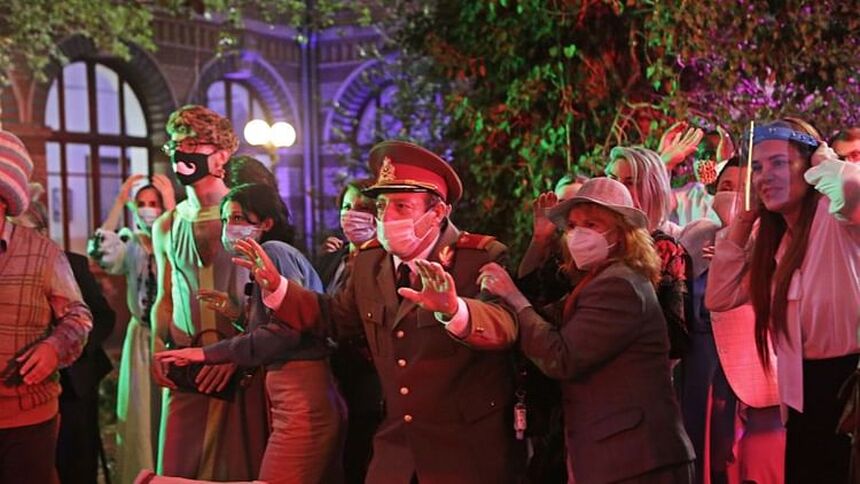
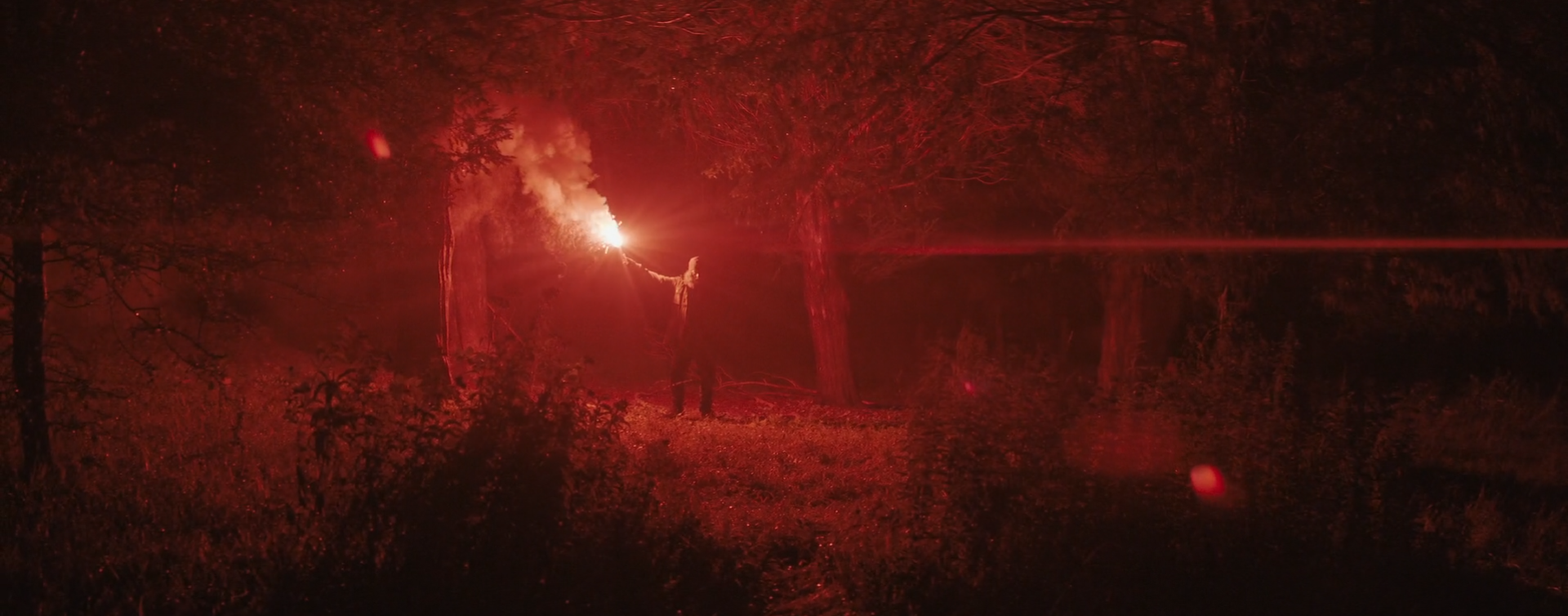
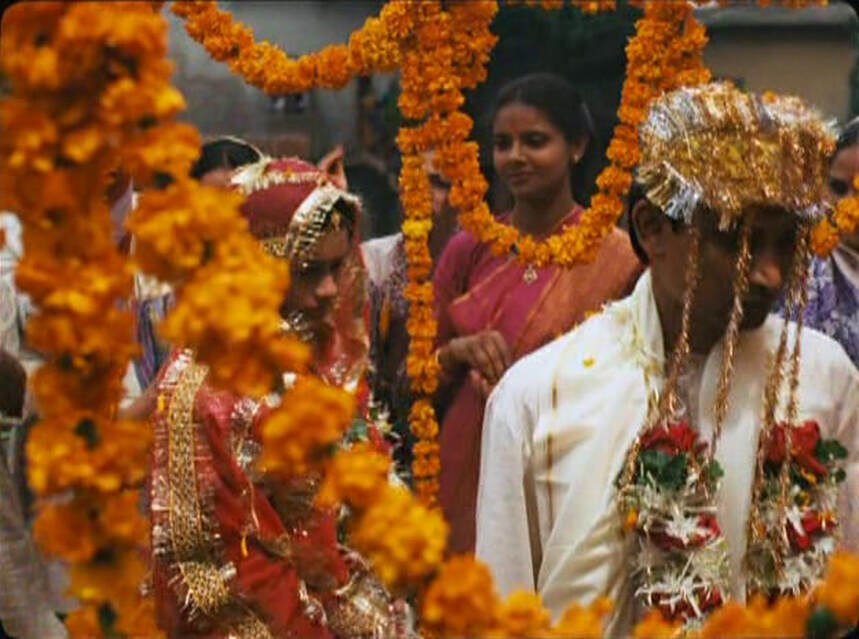
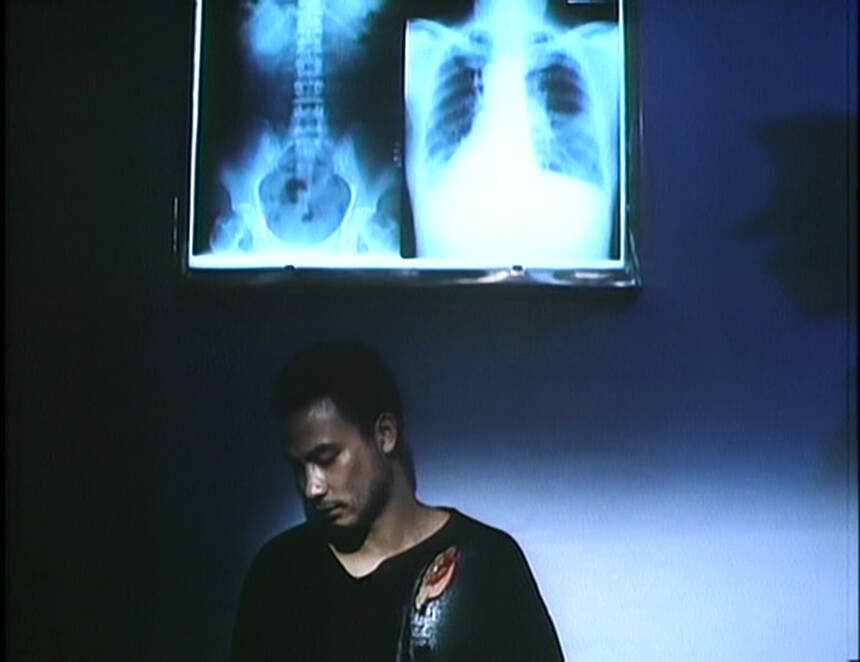
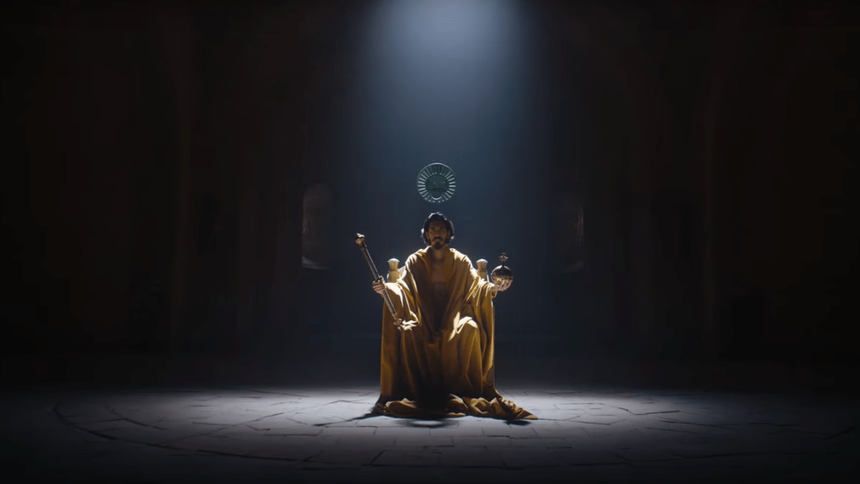
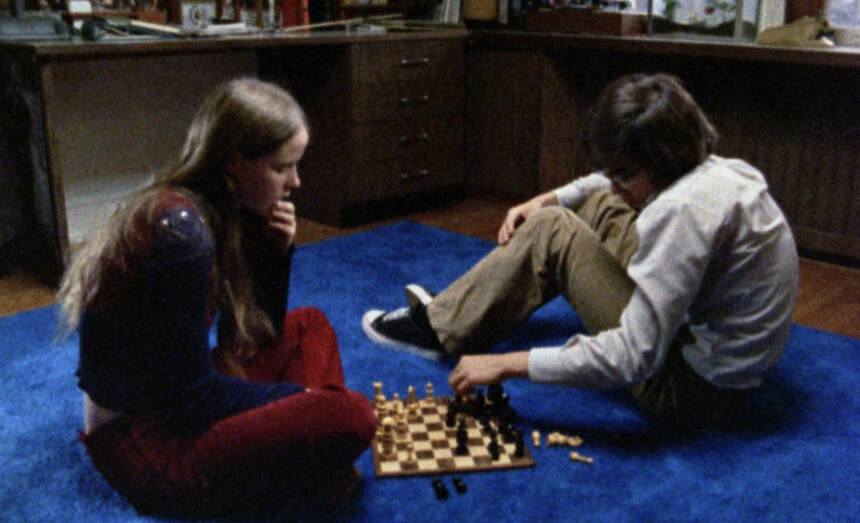
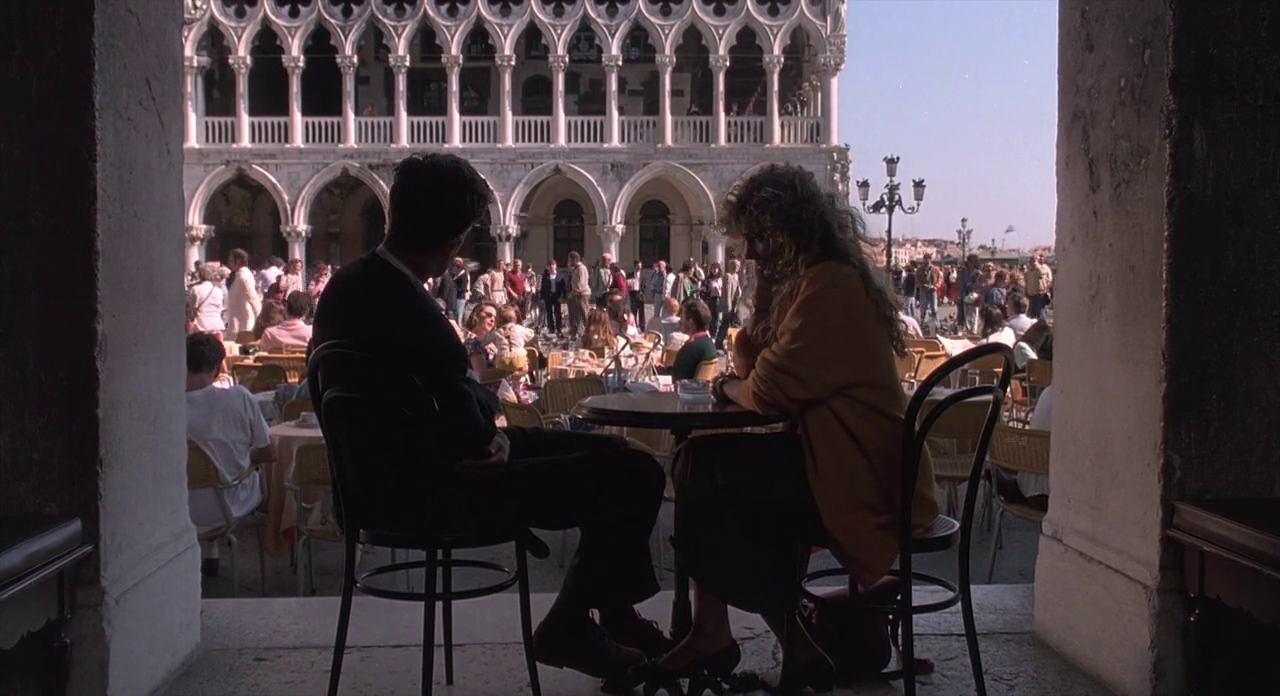

 RSS Feed
RSS Feed
